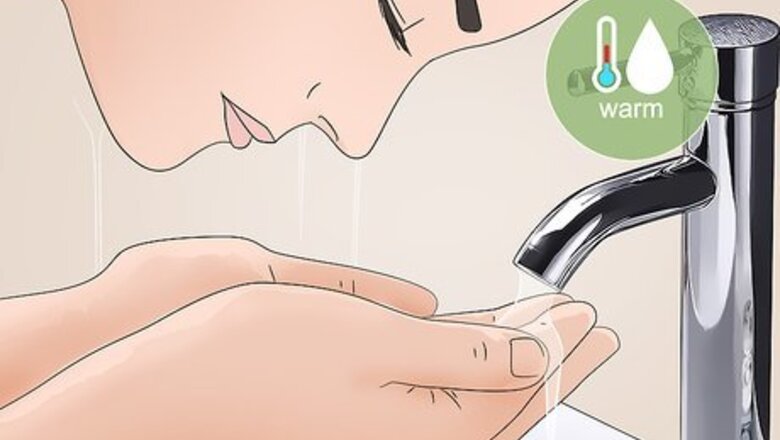
views
X
Trustworthy Source
PubMed Central
Journal archive from the U.S. National Institutes of Health
Go to source
Oil cleansing isn’t for everyone, however, and people with different skin types might experience clogged pores and further acne breakouts. This is why you should talk to your dermatologist before using it to make sure it’s safe for you. If your dermatologist thinks this is right for you, then you can start a daily argan oil cleansing regimen.
How to Apply It
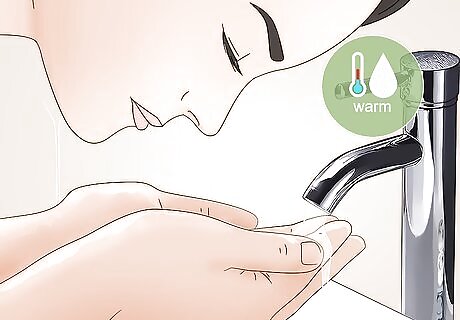
Wet your face with warm water. You could either splash some water onto your face or hold a wet washcloth against it for 20-30 seconds. This opens your pores and removes any loose dirt on your face. You could also apply the oil if your skin is dry, as long as your face is clean.
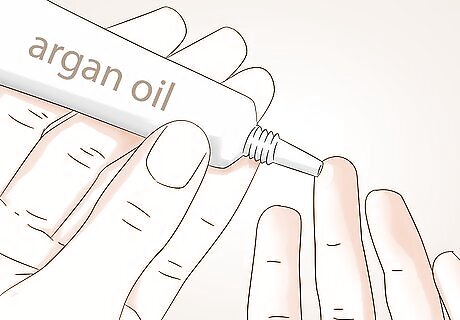
Squeeze a 2-4 pumps of oil onto your fingertips. You don’t need a lot of oil. Most products recommend 2-4 pumps from the bottle. Make sure your hands are clean before washing your face, or you could cause acne breakouts. Different products may recommend a different amount, so always check the instructions that come with your oil cleanser.
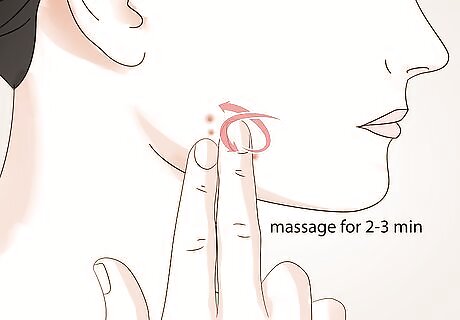
Massage the oil onto your face for 2-3 minutes. Use gentle, circular motions and rub the oil onto your face. Make sure you cover your whole face, not just the spots with acne. Continue this massage for 2-3 minutes so the oil penetrates your skin. Don’t press too hard. Using too much pressure can cause irritation and make acne worse.
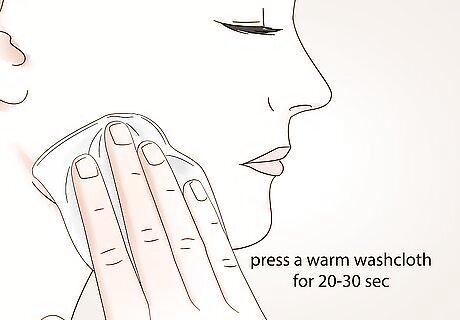
Press a warm washcloth against your face. Wet a clean washcloth with warm water and hold it onto your face for 20-30 seconds. This steams the oil and helps it penetrate your pores. Make sure the washcloth is clean or you could spread bacteria onto your face. Only use the towel once and then wash it.
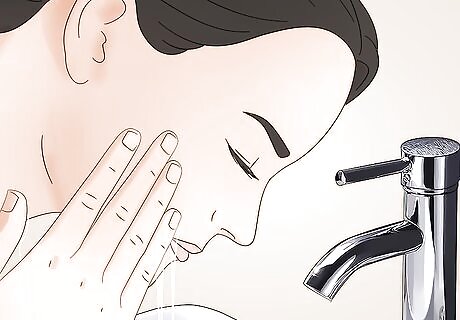
Rinse the oil off. Splash some more water onto your face and rinse all the oil off. The oil may foam a bit when it gets wet, but this is normal. You could also wipe the oil off with a wet washcloth, but be very gentle. Rubbing your face with a washcloth could irritate your skin.
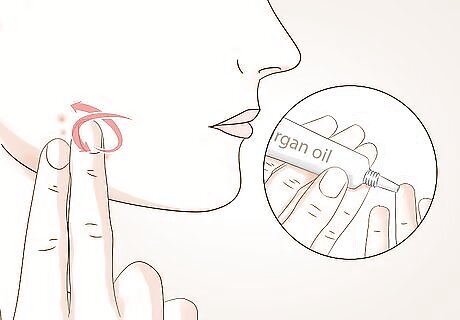
Moisturize your face with a bit more argan oil after you’ve washed. Moisturizing your skin is also a good way to treat and prevent acne. Squeeze another pump of oil onto your fingertips and rub it into your skin the same way you would use any other moisturizer. You could also wash your face with your normal cleanser and then moisturize with argan oil afterward.
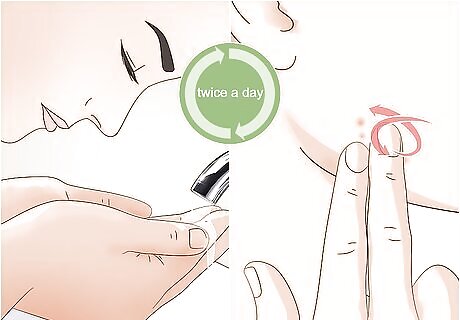
Repeat this face wash twice a day. Studies show that a twice-daily application of argan oil can help reduce acne.
Staying Safe
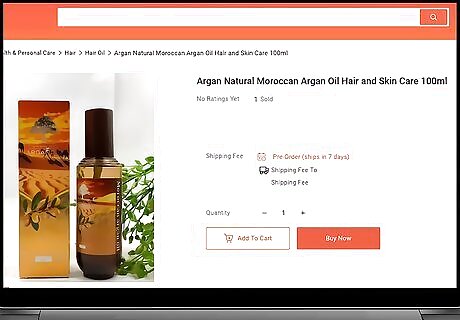
Buy your oil from a reputable manufacturer. Since there’s a large market for cosmetic products like argan oil, some manufacturers dilute or mix their oils with other chemicals. These products are not as high-quality, so investigate the products you’re considering buying to make sure they come from a reputable manufacturer. A reputable manufacturer will be very open about the manufacturing process, the product ingredients, and the source of those ingredients. Also look for reviews and complaints about the manufacturer. If you can’t find many problems, then the manufacturer is probably trustworthy.
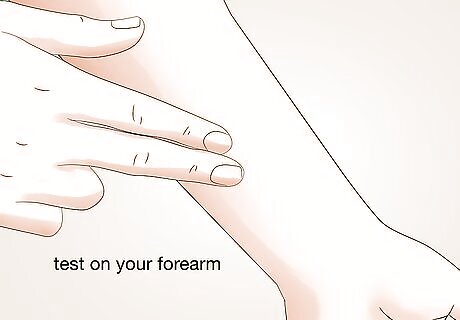
Test the oil on a small part of your skin before washing your face with it. Even if you buy a high-quality product, it’s still possible for you to have a certain allergy or sensitivity to it. To protect yourself, rub a dab of argan oil onto your forearm and leave it there for a day. If you don’t notice any adverse reactions, then you can use it on your face. Signs of a reaction include redness, itching, burning, and swelling. If you have very sensitive skin, then you should also test the oil on a small part of your face before washing with it. Try behind your ear or along your jawline.
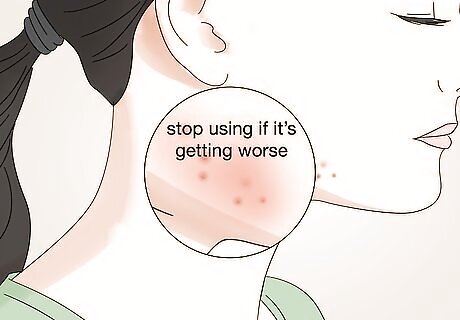
Stop using the oil if your acne symptoms get worse. While argan oil is often effective for treating acne, it may not work for everyone. Some people experience clogged pores, which could make their acne worse. If you notice any increase in your acne symptoms, then stop using the oil and go back to your normal skincare routine.
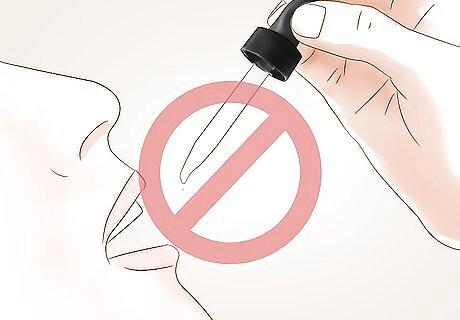
Avoid swallowing cosmetic argan oil. Although some types of argan oil are edible, cosmetic grade oils aren’t. Only use cosmetic oil on your skin, and get an edible type to eat for other health benefits. Edible argan oil could treat joint pain and cardiovascular problems.
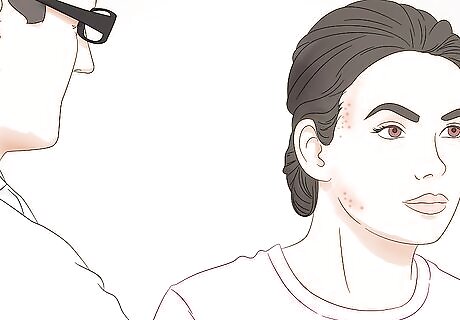
Visit your dermatologist if your acne symptoms don't improve. If argan oil doesn’t help improve your acne, then you probably need a new skincare routine. Visit your dermatologist for an assessment and talk through your treatment options.


















Comments
0 comment